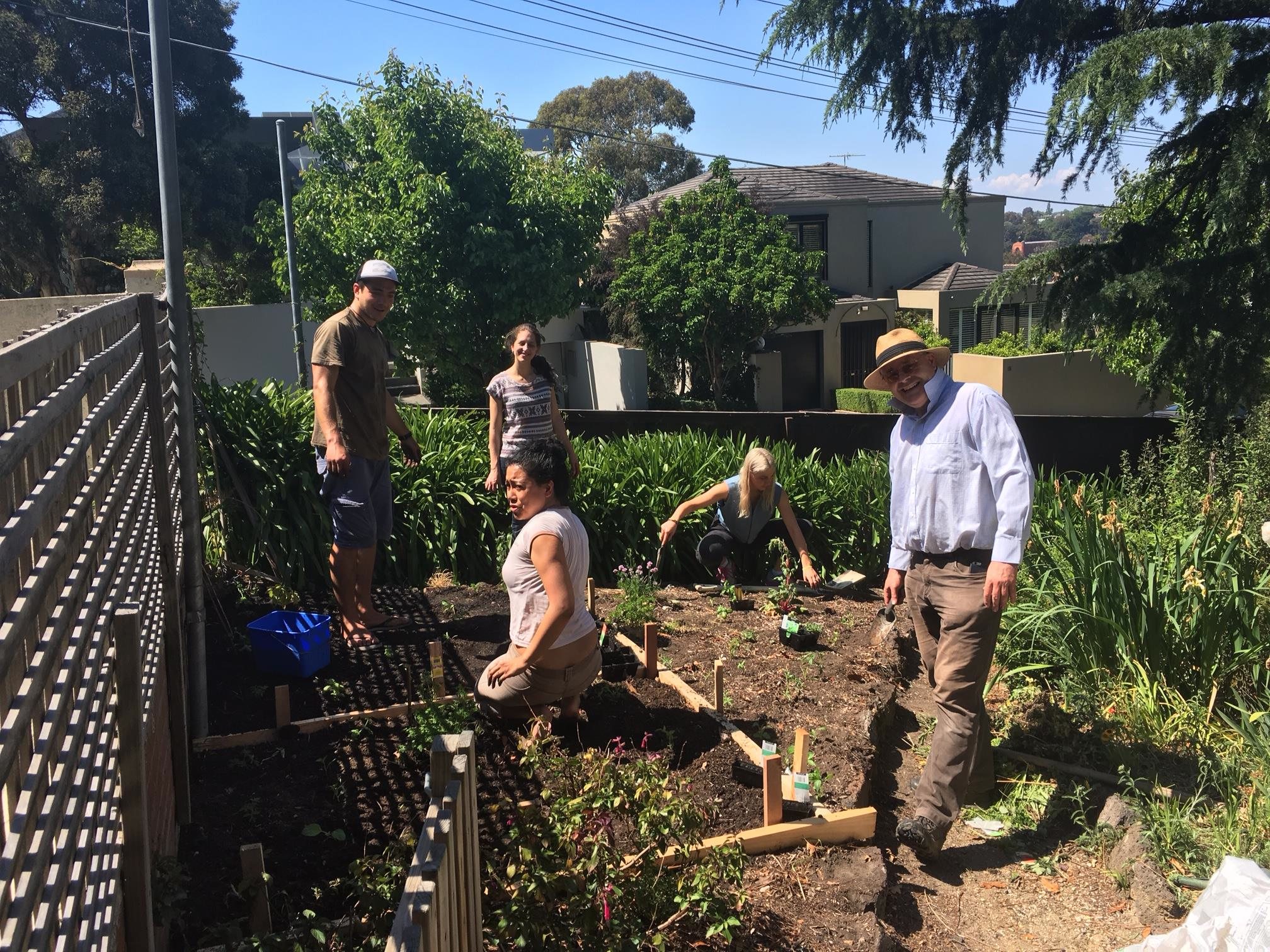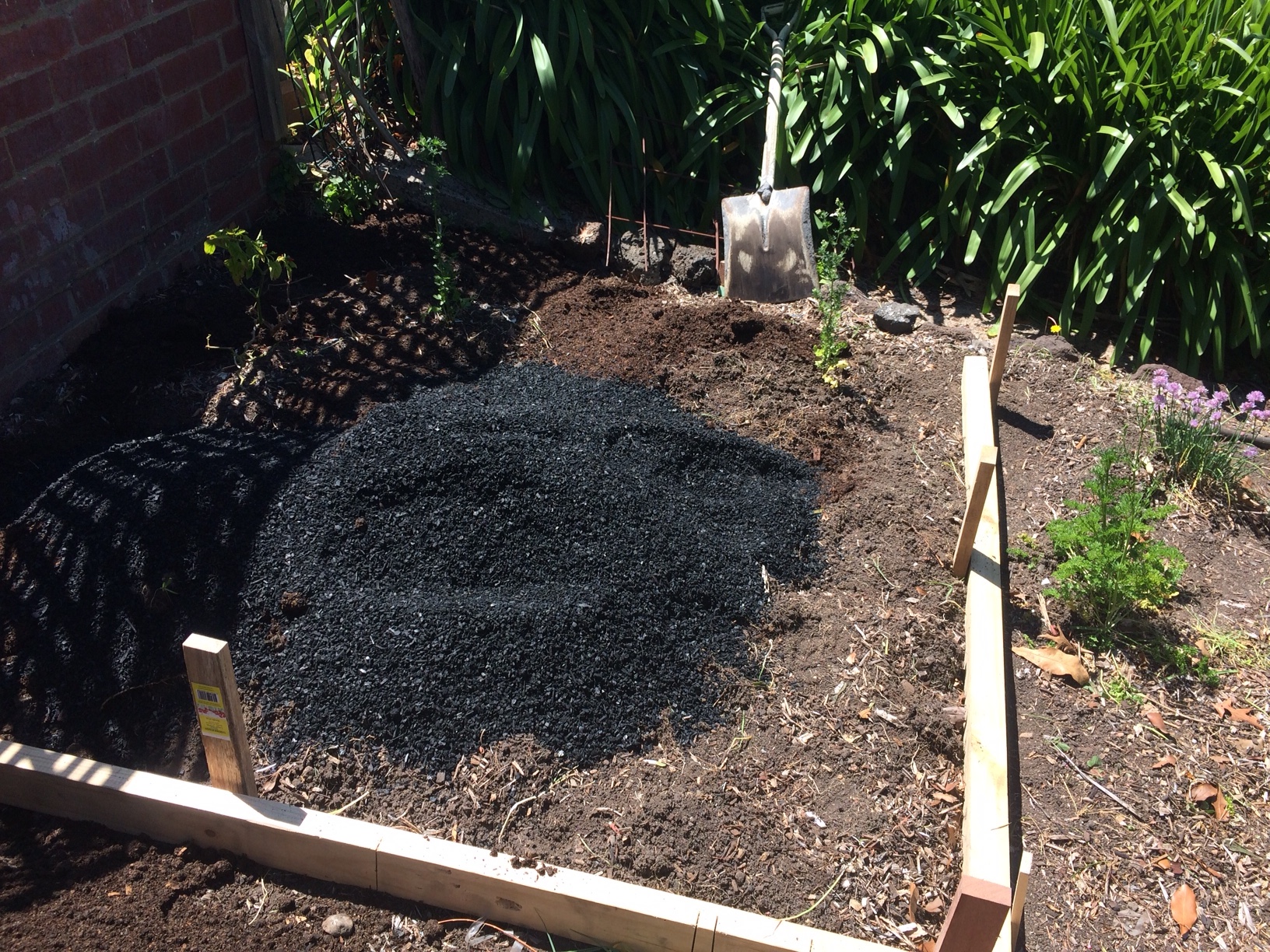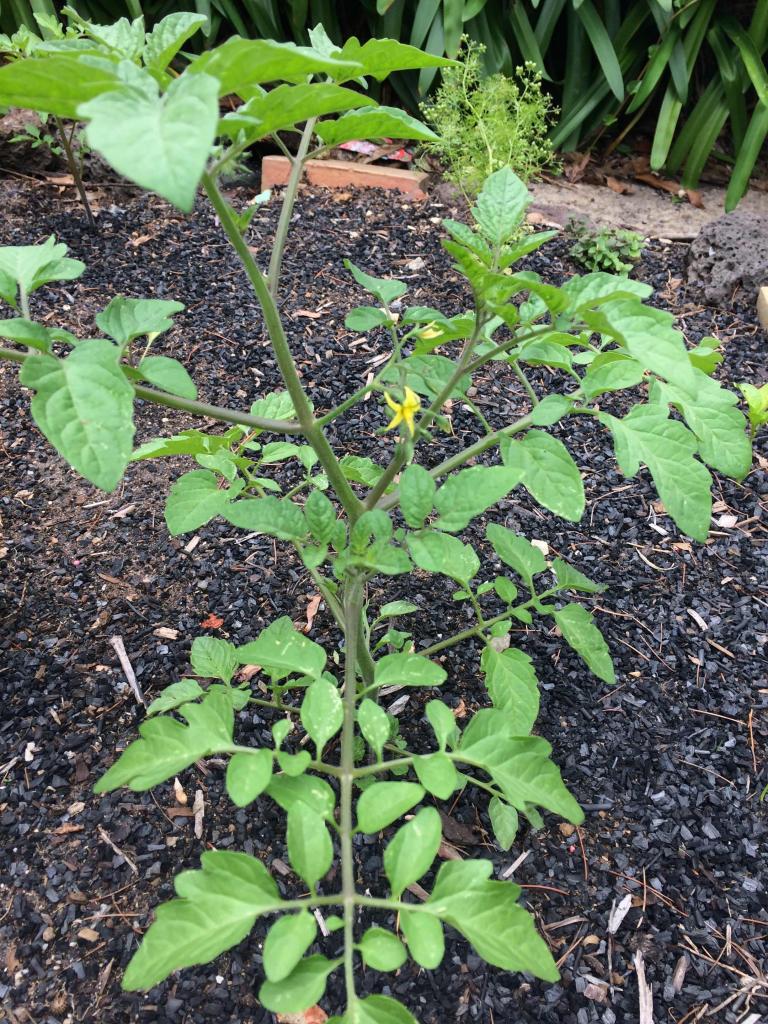Armagh, in the leafy Melbourne suburb of Toorak, was gifted to Initiatives of Change in 1956, and the original parts of the building are now more than 100 years old. While considerable effort has focused on maintaining the interior of the building for hosting conferences, residential courses and other events, in 2017 a small group of volunteers began experimenting with using the lush, expansive grounds for an urban food garden.
The experiment began in a conversation at the Caux Dialogue on Land and Security at the Initiatives of Change centre in Switzerland. High on the mountainside overlooking Lake Geneva, amid discussions of land restoration and resilience building, some IofC network members began to wonder, ‘what if?’ What if, besides trying to support communities in Sudan and Somalia in soil restoration, we in Australia use our plot of suburban land to contribute to urban food systems?

Planting the biochar food garden at Armgh. Clockwise from left: Moana Quiatol; Gwendoline Ntoumos; Kirsty Argento; Nigel Murphy; Arlyn Santos.
Melbourne is the fastest growing city in Australia, and is predicted to overtake Sydney to become Australia’s largest city by 2061. Research suggests that at least 60% more food is likely to be needed by 2050 to feed an anticipated population of over seven million people. But, as suburban housing continues to expand across the landscape, there will be less land available to grow food. This dynamic of increasing demand for food and decreasing supply is likely to lead to rising food prices. Meanwhile, studies have shown that only 6% of people in the state of Victoria consume enough vegetables for a healthy diet, placing them at risk of obesity and related problems.
Urban food production is being promoted through local governments in Melbourne through community gardens and food-sensitive urban planning that takes into account the potential use of available land in cities. ‘The grounds at Armagh are just one example of a resource that could help strengthen Melbourne’s food resilience,’ said Delia Paul, environmental communications specialist and volunteer at IofC. ‘As well, taking part in urban food production can be a way of re-establishing our connection to land and recognising the connections between soil health and human wellbeing.’
Through her work as an environmental scientist at Earth Systems, a consulting firm based in Melbourne, Gwendoline Ntoumos, another IofC volunteer, was aware of the benefits of using biochar, a kind of high-grade charcoal, for agriculture and soil improvement. Earth Systems produces biochar for sale through various outlets in Melbourne. Ntoumos proposed starting a demonstration plot that would grow produce for community use at Armagh while showcasing the effects of growing food with and without biochar. Other volunteers quickly rallied round, offering to donate materials and seedlings for the plot, manage its progress, and post updates to the group. On a Saturday morning in November, a cheerful band met to dig the site and mark its boundaries. On one side, they mixed in some biochar and compost, and on the other side, compost only.

Biochar is known to improve soil health and soil quality through promoting soil microbes, increasing soil carbon, holding nutrients and holding water and enhancing the effectiveness of fertilizers. The effects on soil health are thought to last over the long-term, well past the initial growing cycle.
Several weeks into the experiment at Armagh, project assistant Kirsty Argento reported, ‘The biochar plot is looking a lot greener, lusher, and the plants are mostly bigger. The soil is staying more moist compared with the compost-only plot. We lost some coriander in the compost plot over several hot days in November and the leaves are more yellow and dry. But it is going really well on the biochar side, with everything a great green colour… I think by the end of next week the tomatoes will need staking…’

Urban food production seeks to respond to the rising pressures on food supply, including climate change and issues with the nutritional value of factory-farmed foods. With the biochar food garden, IofC Australia has begun to take part in this growing movement.
If you would like to help out with expanding the urban food garden at Armagh, contact delia.paul@iofc.org.
Earth Systems provided contributions of biochar, seedlings and other materials to help start the demonstration plot at Armagh. Nigel Murphy, director and principal environmental scientist, and Moana Quiatol, environmental engineer, with Arlyn Santos of Armagh, contributed their labour to starting up the biochar food garden. Images from Gwendoline Ntoumos and Kirsty Argento.
Research reference: Carey, R., Larsen, K., Sheridan, J. and Candy, S.; 2016; Melbourne’s food future: Planning a resilient city foodbowl; Victorian Eco-Innovation Lab, University of Melbourne

